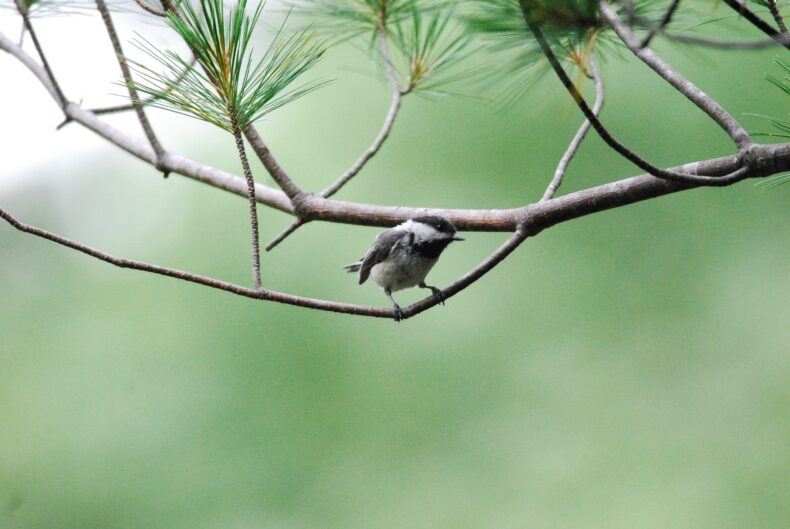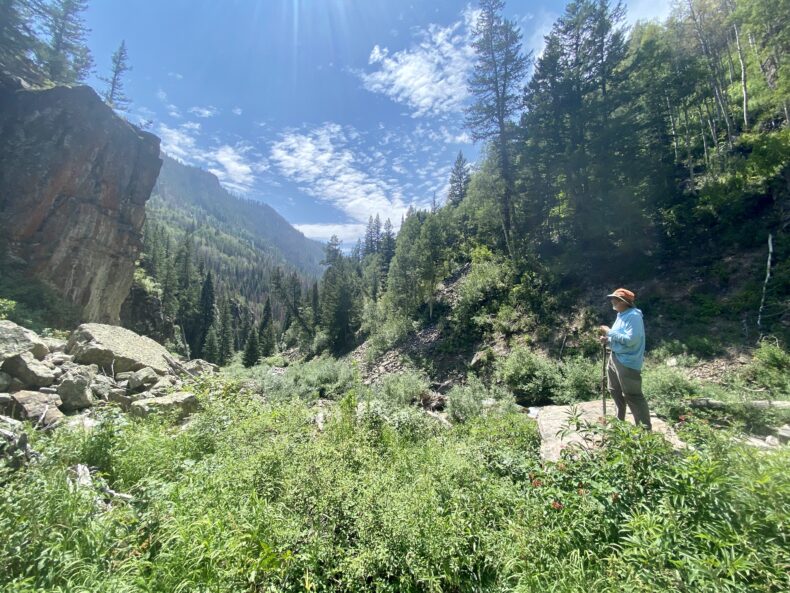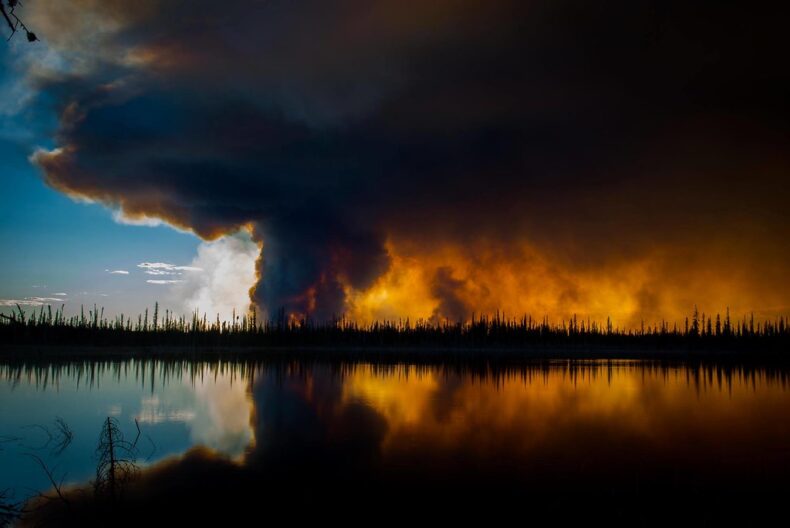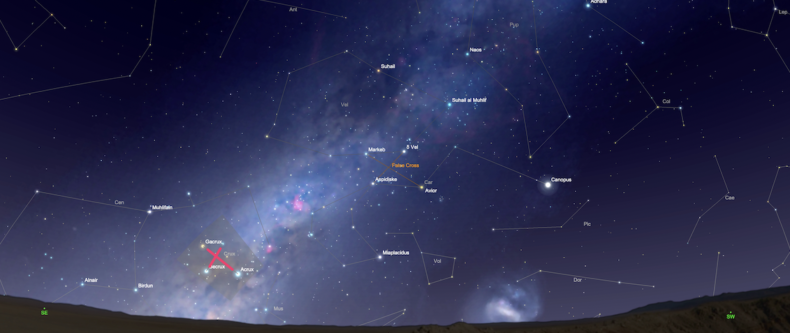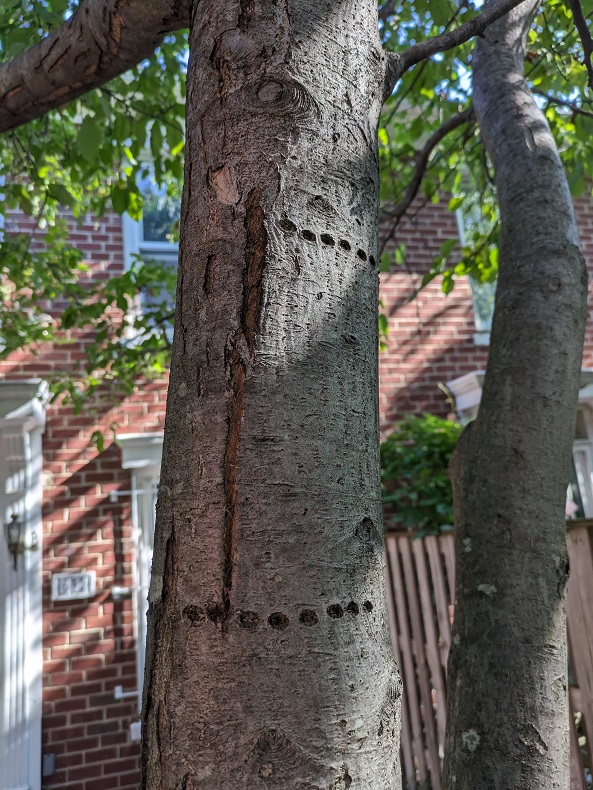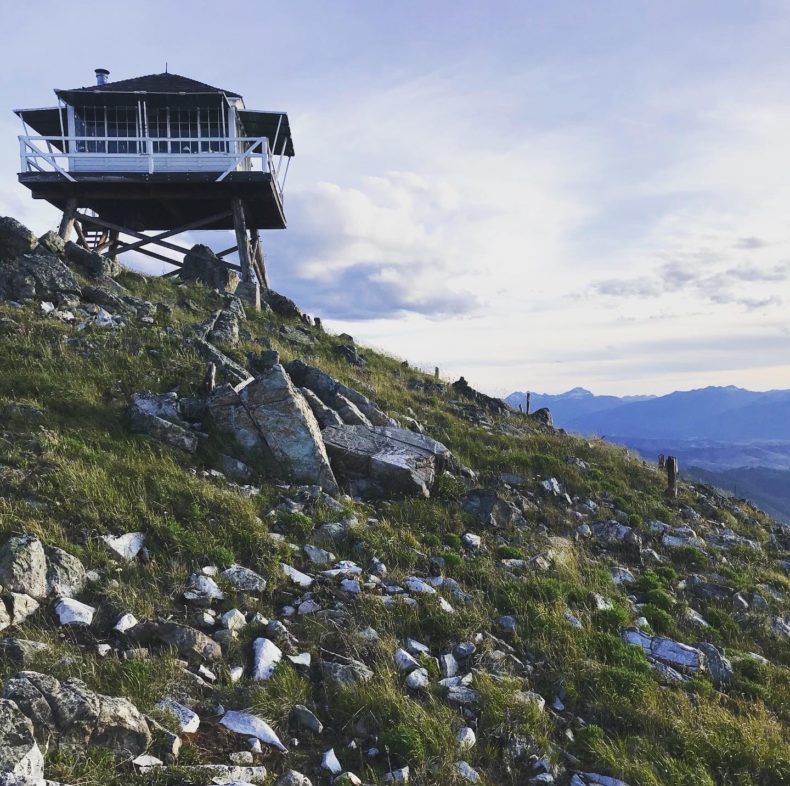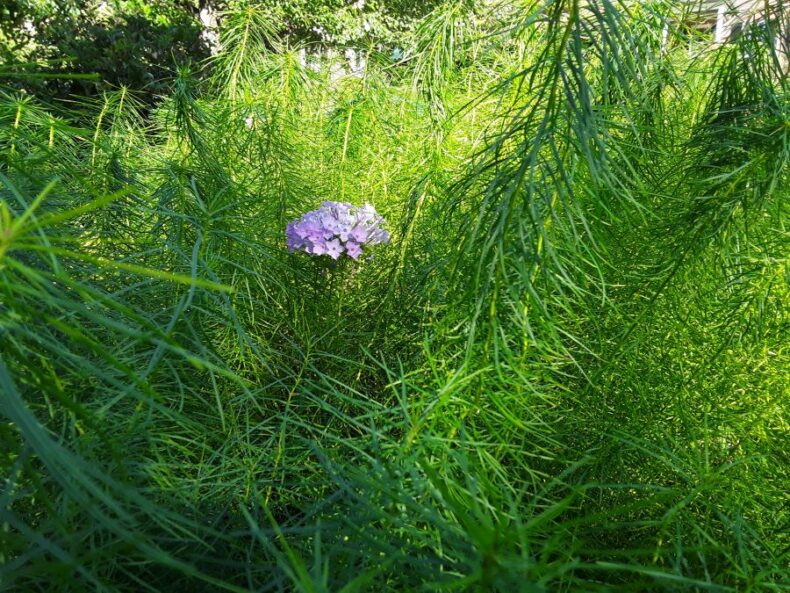Returning to this creek was my stepdad’s idea. At 78, he wanted to try it again, but do it right this time. Twenty-some years ago, when we first hiked this mostly untrailed alpine canyon in Colorado, we planned it as a day trip with a car at either end for a shuttle. My mom was along. The canyon fell through limestone buttresses, the floor roaring where the creek jumped over boulders and falls. We didn’t make it out that day like we planned. The route proved too much and we huddled in beds of leaves through the night wearing everything we had, our campfire reduced to smoke, too damp to keep it going. The next day, groggy and with leaves in our hair, we reached our car.
This summer, we returned with backpacks and proper gear. Three nights out would be a planned bivouac, plenty of time we thought. My mother wisely said no to this trip.
My stepdad and I climbed over fallen trees, mired for hours in labyrinths of beaver dams and their many sloughs, and he kept asking if this was the same creek. A time or two I wondered if we’d strayed into the wrong drainage, though we recognized larger features, chalky gray sheaves of limestone rising up either side of a trout stream, water running over stones of many colors. We didn’t have pictures from that first trip. We might not have taken any, too busy trying to make miles, jumping down waterfalls, our skin stinging with nettle. Now we wished we had because the route looked nothing like it did, at least not how we remembered it.
How much do you remember about twenty years ago? Who were you? In the span of a human life, it’s a good chunk. In the span of the Earth’s life, it’s less than nothing, but so much can happen.
Last time we’d walked right down the middle, calf-deep in chilled mountain water. This time we couldn’t get ten or twenty feet without nearly twisting an ankle in the creek. The bed had been so ruptured by floods that every cobble and rock was free, not at all armored by consistent flows.
My stepdad is a geologist. His go-to quote is by author Will Durant, “Civilization exists by geological consent, subject to change without notice.” In the few decades we’ve known each other, we’ve backpacked into 30-million year old calderas ringed with castles of volcanic tuff, and endless domes, arches, and grabens in Four Corners sandstones. We’ve exhausted each other asking questions about the land, theorizing and explaining the way faults intersect or how gypsum crystals craze between rocks. Now we were exhausting ourselves in avalanche chutes choked with snapped and bent-over aspen trees, trying to get around falls in the creek we couldn’t walk. If there’d ever been a trail, it was long gone.
The first few miles of the canyon had originally been the easiest, and this time took all day. New waterfalls and deep pools had formed from old, big conifers fallen into the path and boulders the size of kitchens that we swore had not been here before. A big fire had ripped through the surrounding watershed and the floods that followed were punishing, stream banks undermined, drawing down landslides. We were seeing the tick-tock of geomorphology, the action of the Earth up close.
I can scarcely account for what else has changed in these two decades. We are older, for one, and I didn’t have children back then. He wasn’t a grandfather. I was a newlywed then and now I’m married to someone else. I live a hundred miles from where I started, and have moved a number of times between here and there. My beard wasn’t completely white and now it is. Aren’t we all landscapes in this way, prone to deposition and erosion, taken apart and put back together?
When the canyon closed more tightly at the end of the day, I told him I felt dubious. The rough corridor did not seem familiar. This we remembered as being the hardest stretch, the one that forced us to bivouac that chilly night. Now it looked undoable, jammed with short, complicated waterfalls dropping one after the next around the bend and out of sight. We’d need rope to get through rougher spots with no place to walk around. I feared search and rescue would be involved.
This wasn’t just the twenty years on us; the place had actually changed. I said we shouldn’t do this, we needed to turn back. He could have been crestfallen, but he seemed resolved. He said this was his last try, and I sure thought about saying damn the torpedoes, hell or high water, let’s plunge in! What better place to perish?
We dropped a camp and slept on it.
I’ve always been the risky one in the family. I’ve gotten my stepdad into perilous circumstances in wild places on multiple continents, and we’ve made it out huffing and puffing. The point is what you see when you’re there. It’s worth the sweat. This must be part of me that changed. Our lives have a different value, or maybe it’s wisdom. In the morning, we packed up headed back the way we came.
Phot by cc
